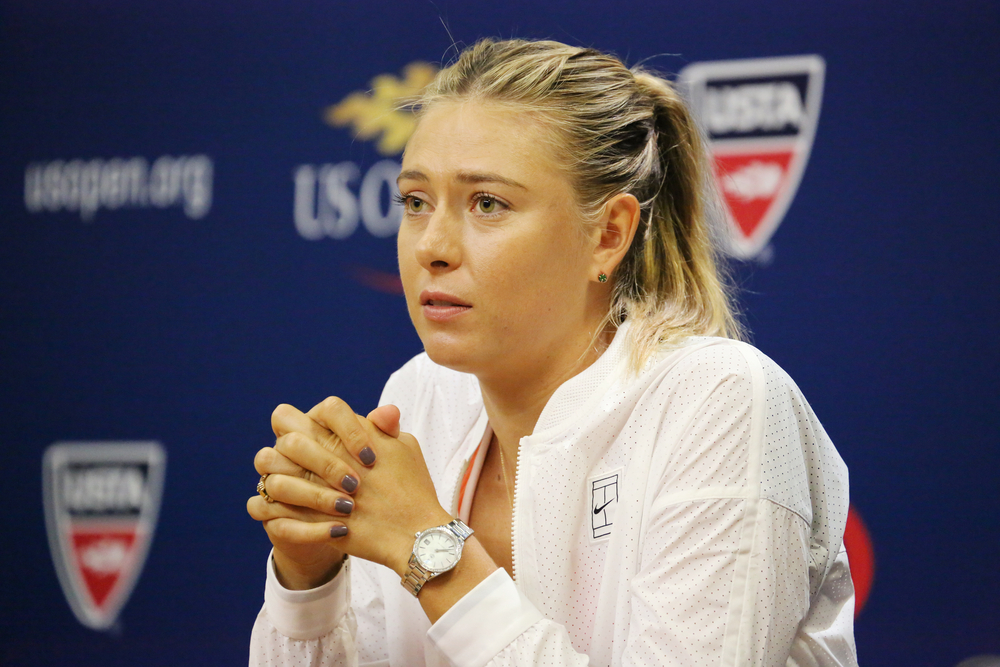
Maria Sharapova has tested positive for a drug banned by the World Anti-Doping Agency, and has been taking it for 10 years, she said Monday.
The five-time Grand Slam champion announced in a news conference Monday that she tested positive for meldonium at the Australian Open on Jan. 26, the day she lost to Serena Williams in the quarterfinals.
Meldonium, also known as mildronate, is a drug originally developed in Latvia for heart patients. It is most commonly used in Eastern European and ex-Soviet countries, intended to improve physical capacity and mental function for sufferers of heart and circulatory conditions.
Sharapova, who represents Russia but has been based in the U.S. since the age of seven, had been prescribed meldonium by her family doctor since 2006 to treat several health issues, including frequent cases of the flu. “I was getting sick very often,” she said Monday. “I had a deficiency in magnesium. I had irregular EKG results, and I had a family history of diabetes and there were signs of diabetes.”
Meldonium was placed on WADA’s banned list in January, in time for the Australian Open, which took place on Jan. 18-31. The agency had announced the change in September, and sent an email to players with a link to a list of banned substances—but Sharapova did not click the link this time, she admitted.
WADA decided to ban meldonium as it can serve as a performance-enhancer in higher doses. The drug, which is not approved for sale in the U.S., improves blood flow, oxygen uptake and endurance. WADA spokesman Ben Nichols told the New York Times it had been placed on the banned list “because of evidence of its use by athletes with the intention of enhancing performance.”
Sharapova’s lawyer, John Haggerty, maintains that Sharapova was “completely unaware there was any performance-enhancing capabilities to it whatsoever” and that the drug merely “brought these conditions that she had under control.” She was on no more than a prescribed dose to get “her health to a normal baseline,” he said.
The New York Times reports that the tennis star will be suspended provisionally Saturday pending a ruling in the case. She has not played since Jan. 26 due to a forearm injury.
“I made a huge mistake, and I’ve let my fans down,” she said Monday. “I’ve let this sport down that I have been playing since the age of four and that I love so deeply.”
A player can be barred for up to four years for intentionally ingesting a performance-enhancing drug, while the maximum penalty for unintentionally using a prohibited drug is two years. Haggerty is hoping the International Tennis Federation will not impose sanctions on Sharapova.
“I don’t want to end my career this way,” said Sharapova, “and I really hope I will be given another chance to play this game.”
Following her announcement, Sharapova has been quick to lose several major sponsors including Nike, Porsche and TAG Heuer. Though Sharapova’s contract with Swiss watchmaker TAG Heuer ended in 2015, the company announced that any talks of continuing to work with Sharapova have been suspended “in view of the current situation,” a spokesperson told NPR.
Last year, Forbes reported that Sharapova has been the highest-paid female athlete in the world for 11 years in a row, earning $29.7 million in 2015—$23 million of which was earned through endorsements and appearances.
